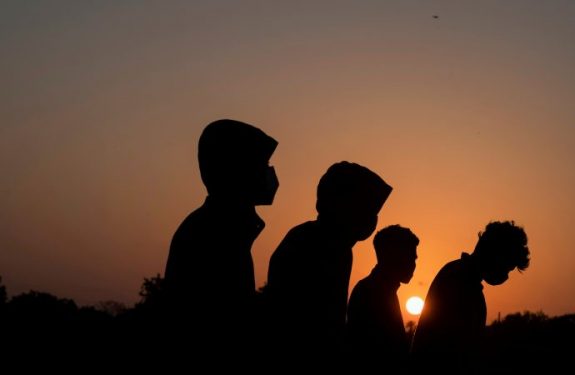
NEW YORK — Rebecca Scholtz has experienced firsthand how the Special Immigrant Juvenile Status (SIJS) program can be an “incredibly life-changing process” for undocumented youth, one that culminates with a green card and the ability to make a life for themselves in the U.S.
For about the last five years, however, the process hasn’t gone as smoothly. Many that have qualified for SJIS find themselves stuck in legal limbo, sometimes for years, because of an existing green card backlog.
“Potentially the most harmful piece for so many kids is having the constant threat and fear of deportation because you are at risk and are not protected, and that adds an enormous amount of anxiety and stress to these youths who have already overcome so much,” Scholtz, a senior attorney at the Catholic Legal Immigration Network Defending Populations Program, told The Tablet.
An inability to lawfully work, have a driver’s license, and get college financial aid are other hardships Scholtz identified that undocumented youth face in this circumstance.
On Thursday, the End SIJS Backlog Coalition penned a letter to top immigration officials in the federal government outlining the problem, the need to fix it, and a number of solutions. The letter was co-signed by over 100 organizations and 150 individuals that include physicians, social workers, lawyers, youth, and teachers.
Catholic organizations that co-signed the letter include Catholic Charities of Boston, Pueblo, Southern New Mexico, of the Archdiocese of Galveston-Houston, the Archdiocese of Galveston Houston St. Frances Cabrini Center for Immigration Legal Assistance, Catholic Legal Immigration Network, Catholic Legal Services of the Archdiocese of Miami and Catholic Migration Services.
Established in 1990, SIJS is an immigration status that allows children and youth who have survived parental abuse and neglect in their home countries to apply for lawful permanent residency in the U.S., or what’s more commonly known as a green card.
To receive SJIS, the minor provides U.S. Citizenship and Immigration Services (USCIS) with a state juvenile court dependency or custody/guardianship order finding that reunification with a parent is not viable due to abuse, abandonment or neglect, and that it’s not in the youth’s best interest to be returned to their country of origin.
Congress created SJIS to provide young people with tools to achieve stability: eligibility for college financial aid, work authorization, and protection from deportation. But, as the letter points out, the “wait for SIJS-based green cards now prevents many young people from accessing those tools in a timely and meaningful way.”
“These young people are left in limbo, unable to achieve permanency goals or access the protections and stability that SIJS was created to achieve,” the letter reads.
“High school graduates must delay college studies. Young people lacking financial support are denied employment authorization. Children in foster care struggle to become independent. And tens of thousands of SIJS beneficiaries waiting for a visa number are vulnerable to deportation to countries they fled to escape family abuse,” it continues.
Scholtz identified an uptick in awareness about the program and an increase in unaccompanied minors entering the country as reasons the backlog began about five years ago. However, the reason it persisted is because of the way the program’s set up.
Both have to do with a cap on numbers. One is a statute that imposes a per country cap on certain kinds of visas, which in this circumstance has created the backlog that specifically affects Mexico, Honduras, El Salvador, and Guatemala.
The other factor is that SIJS is in the employment-based visa category that also has a cap.
“It doesn’t make sense,” Scholtz said. “They’re not an employment-based visa but for some reason the way the statute is written they just come out of this employment-based category.”
She believes eliminating those caps is the fix to the problem.
“A true fix to the backlog, I think, can only happen through legislation that takes these kids in this humanitarian protection out of the employment-based visa system and eliminates caps so there isn’t a numerical limit,” Scholtz said.
“Other forms of humanitarian protection, such as asylum, don’t have a numerical cap per year and it doesn’t make sense that these kids should be in the employment-based category in the first place,” she also noted.
Of course, legislation will take time. That’s why in the immediate future Terry Cody, the legal director for the Catholic Charities of the Archdiocese of Galveston-Houston St. Frances Cabrini Center for Immigrant Legal Assistance, told The Tablet that “protections from removal of deportations and work authorizations” are a quick way to address the problem.
Scholtz further noted that providing the work authorizations would allow these children while they’re waiting in the backlog to “get jobs, support themselves, achieve independence and through that process protect themselves from further harm, exploitation and things like homelessness.”
Protections from deportations and work authorizations were also two solutions presented in the letter from the End SIJS Backlog Coalition to the top immigration officials. Another immediate solution it presented was issuing guidance directing immigration judges to terminate deportation cases where the respondent has a pending or approved SIJS position.
